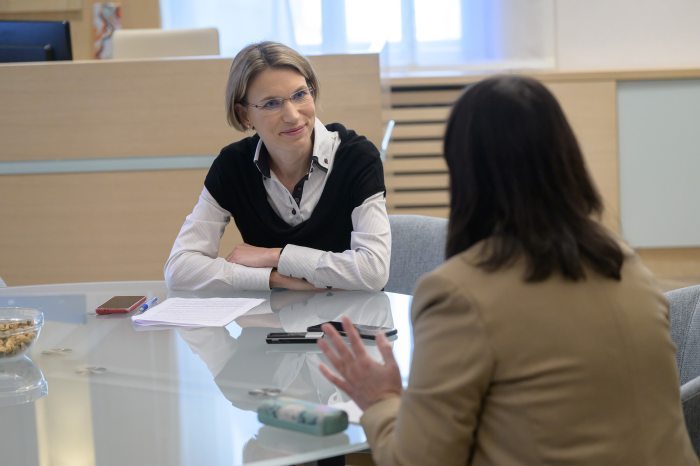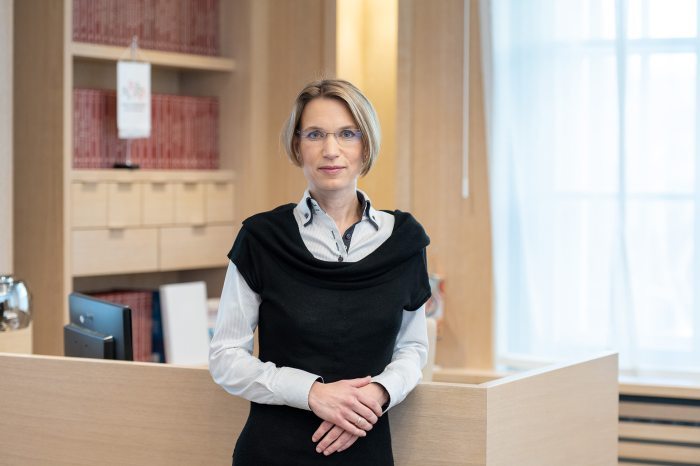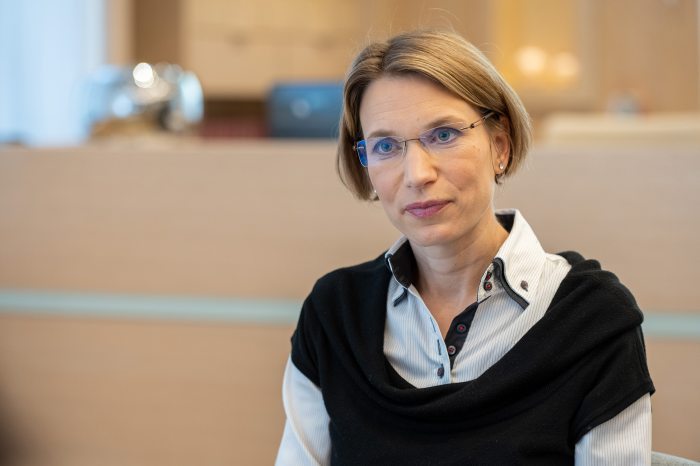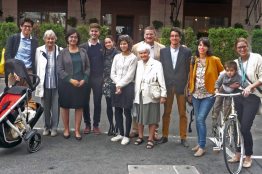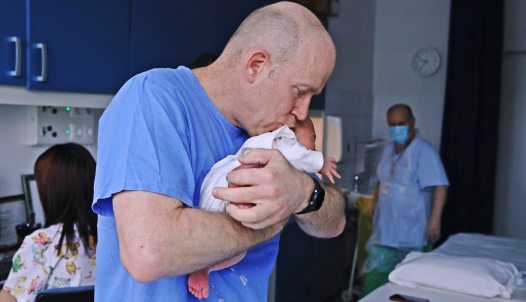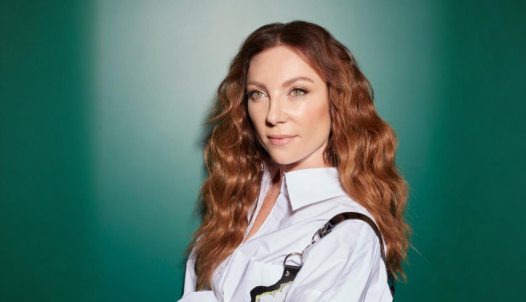A new Secretary of State who believes in the compatibility of being a mother and having a career – an interview with Ágnes Hornung
Those who know the story of her life rightly think of her as a brave and tough woman. She is the one who left her position as Secretary of State to go and have children, and then when she had two small ones she took on another risky mission and said yes to another position as Secretary of State. Today, she is the face of family-friendly politics in Hungary. She can authentically represent this family policy, the most important pillar of which is precisely the balance between work and family life. Meet Ágnes Hornung, State Secretary for Families at the Ministry of Culture and Innovation.
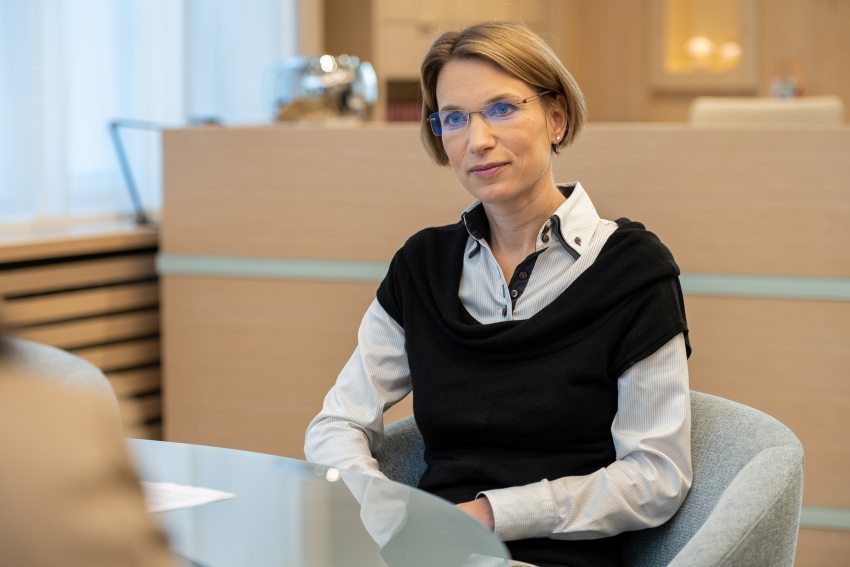
You were the first Secretary of State who left their position to give birth to your child. But now, when you have two small ones, you have agreed to take up a new position as Secretary of State. Did it take a lot of courage to make these two decisions?
It’s true, there has never been a Secretary of State before me who’d leave to have a child because it is more common for women to build a career at an older age when they have older children. I was Secretary of State for Finance at the Ministry of Finance between 2015 and 2018, and I loved my job. But I came to a point when I felt it was time to start a family, and that became my priority. My return to work was like a folk tale: as a mother of two small children, I had planned to come back a little later, but I was asked several times, and finally, I could not say no, because it was a very honourable task and mission. I am happy to be Secretary of State for Families after the birth of my children because it makes me more empathetic to the needs, problems, and joys of families. It’s true, it mothers with young children do need to have courage if they want to return to the labour market earlier, but it is important that the decision is taken freely and within the family.
In your experience, why is it important to have more women in decision-making positions and political leadership?
In my work in the Ministry of Finance, I have observed that although finance is a technocratic field, men make decisions differently because they have different dynamics and different ways of thinking than women.
I believe that in order to make good decisions in all areas of life, we need both men and women.
It is not a stereotype, but a fact of experience that men who make decisions think in big steps, with ambitious goals, and we women pay much more attention to detail, which is also important, because we would not be able to make big steps without paying attention to the small details. In addition, we women - with respect to the men exceptions - have greater empathy, and we tend to be more able to utilize our emotional intelligence in our work. This is important because when we make laws, it is important to see the problem behind the legislation that we are trying to solve or the situation of the individual that we are trying to alleviate. You also have to consult with a lot of people involved, which you cannot do without empathy. That is why I hope that we will see more and more women in government and in leadership positions, where decisions that affect our lives are made because I believe that really good decisions can be made by women and men working together.
Who can you turn to for help and how do you balance work and family life?
My husband takes a lot off my shoulders, I couldn't do this kind of work without him, and I can talk everything through with him and we make decisions together. The support of my family is a huge help. My older is fortunately happily settled in a small group at a nursery nearby which he started in September, while my younger child is still in daycare. As Secretary of State for Family Affairs, I am lucky to be invited to many events where my family is welcome too, so even if it is at weekend or after working hours, it is still a time when we’re together so it is much easier.
You mentioned how good it is to be able to be in this position as a mother of two. What new skills and insights have raising children and having a family given you?
I have much more patience now since having children. I've learned to explain things to my four-year-old very simply or in completely different ways and by using a lot of examples. I find this very useful in everyday life.
Do you have role models or certain kinds of patterns from your childhood and early career that help you cope in difficult situations?
I am grateful that my brother and I grew up in a close-knit, loving family. One of my great role models is my father, who is a model of diligence and perseverance.
In all my jobs - in the business sector, in government, in Brussels, and in Hungary - I've had the opportunity to work with fantastic people and I’ve learnt a lot from them.
As much as I know, sport used to play a big part in your life. Do you still have time to do some exercise or go to the gym? Do you want your children to play sports?
Unfortunately, I have very little time for exercise nowadays, but in the past, when I was studying or later working, I always made time for sports. I tried many sports and triathlon ended up being my favourite. It is a monotonous, hard and complex sport. I find it relaxing when I do the miles in the pool because I can get to a relaxed state of mind where I can start to rebuild, and it's very healthy, too. Swimming has always been my favourite, but I enjoy running and cycling too. I really want my children to play sports, and we already started to introduce different kinds of sports to my son but we want him to be able to choose what he wants to do. He said he would like to do fencing, probably because he likes playing with his toy sword. I've never tried it, but I think it's a very good idea.
I think it is not easy to be the Secretary of State for Families in this difficult economic climate. What is family policy about today?
I think it is important to make it clear that the state's ability to help families financially is only one aspect of family policy. For the government, the pro-family turn 12 years ago meant a change of attitude in the country: for us, families are a priority, they are the foundation of the nation, and we want to help them to thrive in every situation. To do this, the government has set out three main objectives: one is to help people have children. We will of course provide financial support for those who have children, but we can also help them by, for example, encouraging maternity wards to become family-friendly or by expanding the network of district nurses. The second is financial support that we provide for those getting married, having a child, or setting up a home, but also we give them tax allowance or make it possible financially for grandparents to help the young couple. And our third goal is the balance between work and family life.
After all, the first thing we talked about in this interview was how important it is for mothers - and fathers too - to be able to go back to work if they want to, but if they want to stay at home, make it possible to spend their time with their children.
We made their return to work easier by tripling the number of villages or towns where day-care centers are available since 2010. And we're encouraging employers to see that if there is a balance in their employees’ work and personal lives it contributes to the efficiency of their business. Companies are now competing to win the Family Friendly Workplace Award.
Family policy is also very special because family life is a private matter in which we cannot interfere - but we can give support! We provide security and predictability for the whole family throughout their life – and that is the essence of our policy.
I appreciate the work that the government has invested in recent years in developing a network of institutions to help victims of relationship violence. Is there any way to continue to maintain and operate this?
Yes. Our aim is that everyone should be able to get help, no matter what kind of family they live in, and we should not lose those whose lives are not going as planned.
What tasks do you have in the near future?
I think it is important to raise awareness about breastfeeding and that mothers get the help they need about it. We plan to set up a national breast milk bank. We also want to help older people affected by dementia. All in all, the most important goal is to keep the achievements of Family Friendly Hungary, to keep this mentality going, and to ensure that families continue to enjoy the opportunities that have been created so far.
I work to help as many people as possible to experience the wonder of having children.
What are your plans for Christmas and New Year’s Eve?
I'm looking forward to Christmas, to being together with close and extended family and friends. I'd like to slow down a bit during the holidays... We will decorate our home nicely, but we're not planning on doing much because the most important thing is to be together.
Will the kids be allowed to have cookies, too?
I was very strict with my first child about not eating sweets, but I can see how difficult it is to keep this with the little one, when the older one can eat sweets now and then. Of course, we will have Christmas cookies.
